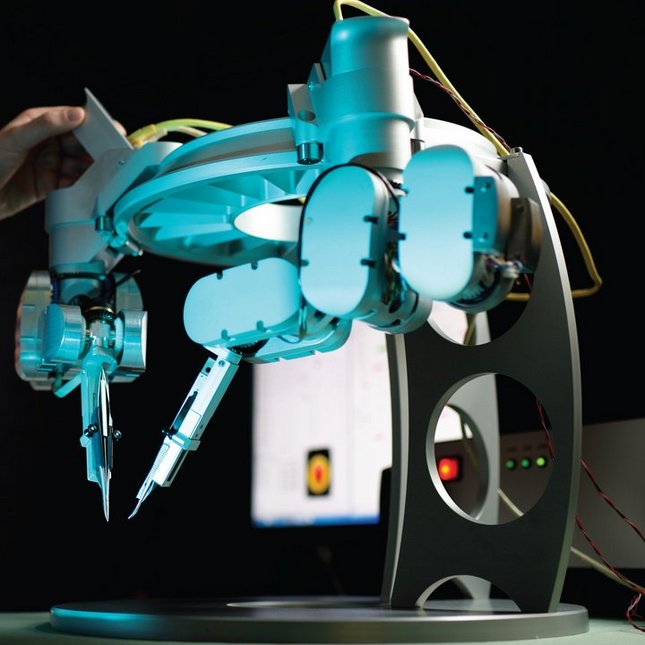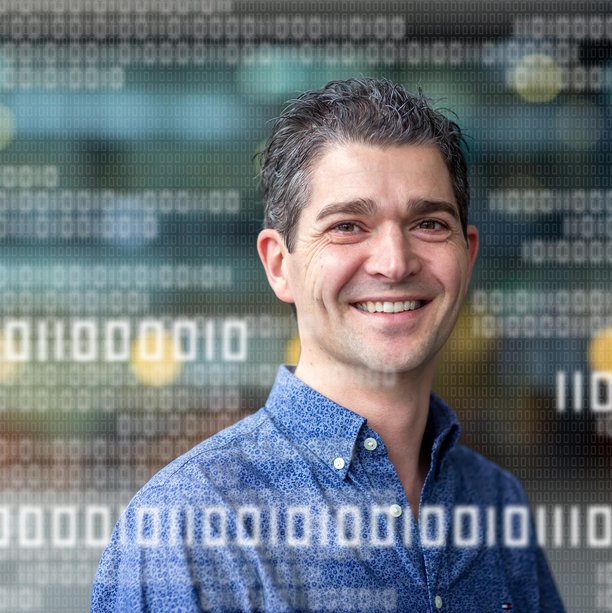Making machines smart through learning
Tom Oomen is associate professor at the department of Mechanical Engineering of the TU/e, where he is part of the Control Systems Technology group. He is also involved in the work of EAISI, the new institute of TU/e in the field of artificial intelligence. AI plays an important role in his research. A short introduction to his work in five questions and answers.
What is your key research question?
Our research is centered around control systems in high-precision machines. Think of printers, microscopes, large telescopes, CT scanners in medical applications, but also wafer scanners for the semiconductor industry. These impressive machines are becoming increasingly complex to be even faster, and more accurate. That is where our control systems come in. They ensure that errors remain within acceptable levels. Traditionally, control engineers do this by using coarse mathematical models and real-time feedback from the machine. This traditional approach has several drawbacks though. It requires quite rigid machines, to reduce unwanted vibrations. And over time, these high-precision machines tend to deteriorate, because of wear and tear, heat, and other environmental factors.
We aim to develop a new generation of control systems that can learn from past mistakes, and have the ability to correct them. We do this by using the massive amounts of data produced by the sensors inside the machines. Applying learning algorithms, such as iterative learning control, reinforcement learning and Gaussian processes, we are already able to correct machine errors within just a few iterations. This allows us to upgrade existing machines and, it paves the way for new revolutionary machine designs that are lightweight, more accurate, cheaper, and more versatile. Our ultimate goal is to develop a control theory that can optimally predict the behaviour of complex machines within the real world.
What is the main challenge in your work?
Machines are what we call cyber-physical systems, which means that the use of data has an immediate effect on the real world. This also implies that learning in machines - as we like to call it - has to be both fast and safe. Fast because they have to learn in real-time, and safe, because any mistake may result in production loss and even damage to the machine. We believe that control theory provides the essential tools to achieve this. Our main challenge is that high-tech systems, especially the lightweight and flexible machines of the future, are equipped with hundreds of sensors and actuators with very complex behavior. This leads to an explosion of complexity of models and learning algorithms. A second challenge is to transfer learned behavior from one task to the other. New production techniques allow customization of every product. This implies that learning should be flexible, so that it can adapt to changing tasks. Fortunately, our recently developed algorithms have already shown success in this respect.
What are the practical applications of your research? How does it benefit society?
Our main application expertise lies in advanced motion control of mechatronic systems such as printers and wafer scanners. As I’ve said, this not only benefits existing machines, but also allows for revolutionary new designs for manufacturing machines and scientific instruments. Of course, since control is everywhere, our results also have many benefits for other emerging fields. Through collaborations we have already achieved major improvements in the medical world (CT scanners and mechanical ventilation), energy (nuclear fusion and control of wind turbines), and automotive (transmissions and combustion engines).
How do you see the development of AI in the future?
Artificial Intelligence is a very broad area, but as far as our research is concerned, one of the main challenges of AI is to use it in a way that is both fast as well as safe and robust. Especially now machines are becoming more intelligent - think of robots and self-driving cars - safety is key. We believe that data-based learning should be combined with model-based control engineering. This allows us to learn fast and efficiently from a limited amount of data. Also, it enables you to give a provable robustness guarantee in the presence of uncertainty. Beyond that, I think privacy and security will become major concerns, as more and more intelligent machines - think of the internet of things, - are entering our homes. Control systems should therefore be secure.
Why should any AI researcher want to work at the TU/e?
Of course, AI has been around for a long time, but especially in the last decade it has become much more visible in our daily life. For me, the most important reason to work at the Eindhoven University of Technology is the unique and very open ecosystem of high-tech companies. We collaborate directly with both large industrial partners in the region, including Philips, ASML, Océ, TNO, and DAF, as well as a large number of smaller companies. This allows us to contribute to highly innovative and exciting new applications, with a real impact on the world. The new EAISI institute will accelerate this further by bringing together researchers working on different aspects of AI.
Help us make machines smart
Are you interested in the work of EAISI? Want to join Tom in his work on making machines intelligent? Either as a student or an academic? Check out what TU Eindhoven has to offer.

